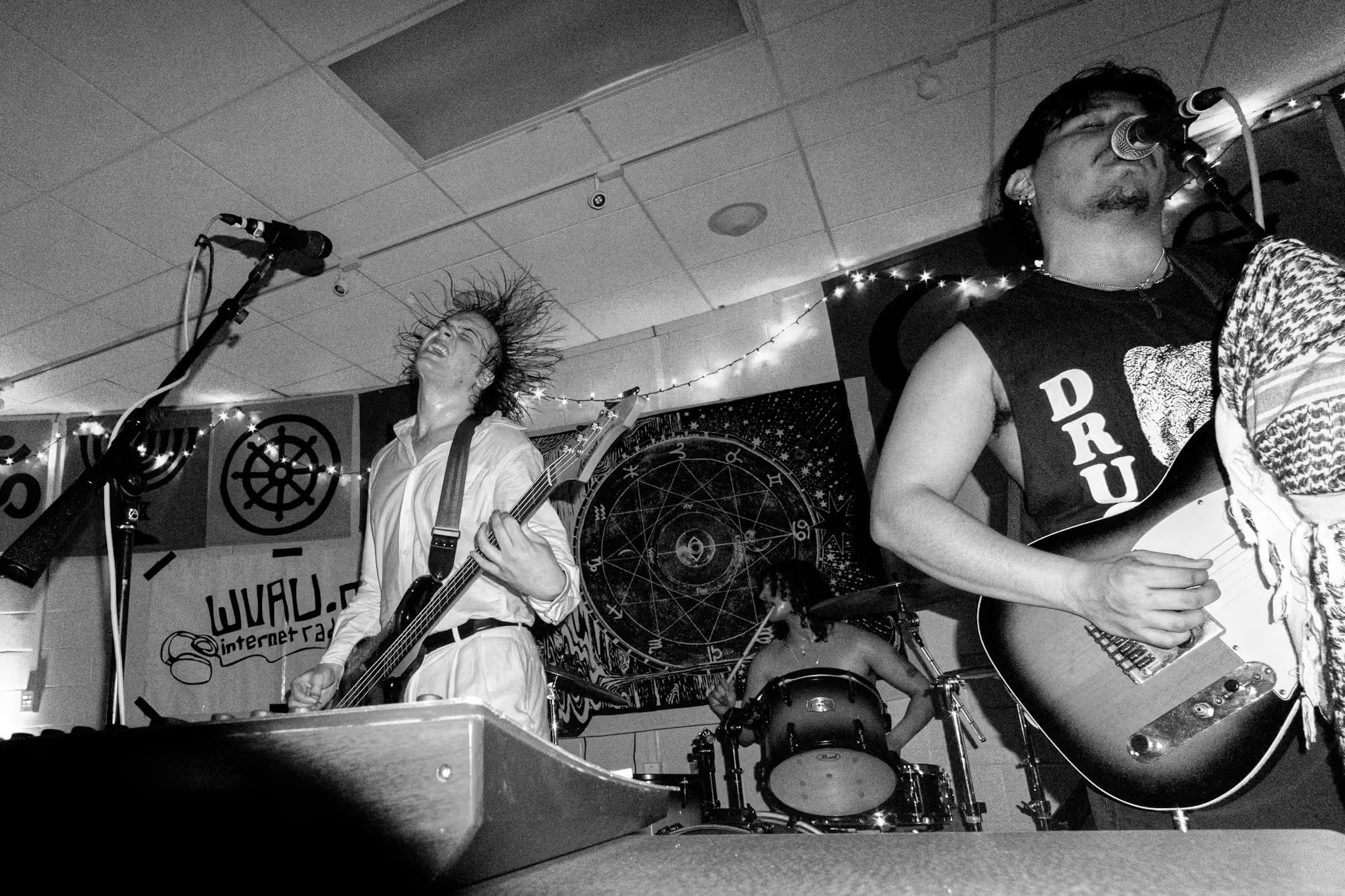TORO Performing in the Kay Basement, March 2024. Photo by Ryan Barna
Independent venues have been at the heart of the D.C. music scene for decades. Basements, warehouses, bars and more turn into a breeding ground for new music and art, and a space for people to be themselves.
In its early days of the local punk scene, large venues had no interest in booking punk-rock acts, despite their crucial role in the city. In lieu of a space for artists and fans to unite, community-run, do-it-yourself (D.I.Y), venues were a necessity. They quickly became more than just venues; they became safe havens for people from all backgrounds — especially those excluded from the mainstream — could gather, experiment, and build lasting communities.
“The best thing that an underground space can do is enable the collective, the artists, the organizers, to do what they do best, which is to put on a show for their community, to highlight the exodus of their style.” Said Kabir Khanna, one of the minds behind Transmission, an up-and-coming independent venue in DC.
Despite the role they play and its iconic history in the city, competing with corporate venues in the city becomes difficult, especially with rising rents and operation costs. Washington, D.C., is ranked as one of the highest cost-of-living cities, and has an average rent of over $2500, according to data from construction coverage. These financial pressures are hard enough on individuals, and even corporate venues suffer at the hands of price increases.
“Cost of rent here is absurd. Like, rent is very high. The insurance is incredibly high,” said Khanna. “Every single thing that you want to do, everything that you need, and to just open your doors is all incredibly expensive.”
Raising costs and navigating a post-COVID industry has proven to be more than a lot of spaces can handle. Many venues cherished by locals for their ability to provide community and highlight local music, like The Runaway and Slash Run, have had to close down due to expenses. As the industry continues to transform, it becomes clear that more than anything, venues have to turn to the community for support.
Rhizome, one of Northwest DC’s most beloved venues, almost faced shutdown when developers began creating plans to take over their venue, and rents for a new space were nowhere near a realistic budget for them. They were able to crowdfund for money to buy a new space.
“A lot of people in the community are very invested in the space, and have helped us financially.” Said Layne Garrett, founder of Rhizome. “A lot of people loaned us money in order to buy that new building. There is deep community investment,” Garrett continued.
As for the future of D.C. DIY, it is in the hands of the community now more than ever. These spaces have never had the corporate backing that places like The Anthem or Capital One have. What they do have is the support of the people, because they provide something corporate competitors cannot: intimacy, accessibility, and a sense of belonging. Crowdfunding campaigns, collective ownership models, and pop-up shows in unconventional spaces are the new blueprint for the survival of independent music. They are living reminders that music isn’t just a product to be consumed, but a collective experience to be shared, nurtured, and protected.
“DIY venues give bands more potential creativity and fans can see more gigs. Like, there’s more opportunities to play out, and that, in turn, inspires more people and builds a larger community.” Said Ian Donaldson, a DJ who runs the venue, 6:30 club, out of his house.
At its core, the future of D.C.’s DIY scene is not just about keeping venues alive, but about preserving a culture of resistance, creativity, and community care. It is never the money that keeps these spaces going; it is the love of the game, the passion of the organizers, and the dedication of the community that keep them alive.
“What makes parties and what makes crews interesting are the collectives themselves that are organizing it, and the artists behind it.” Said Khanna.
As long as artists and audiences are willing to carve out their own spaces — in basements, backyards, or borrowed rooms — the spirit of D.C. DIY will remain unshakable.

